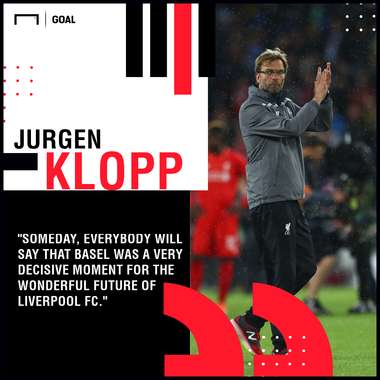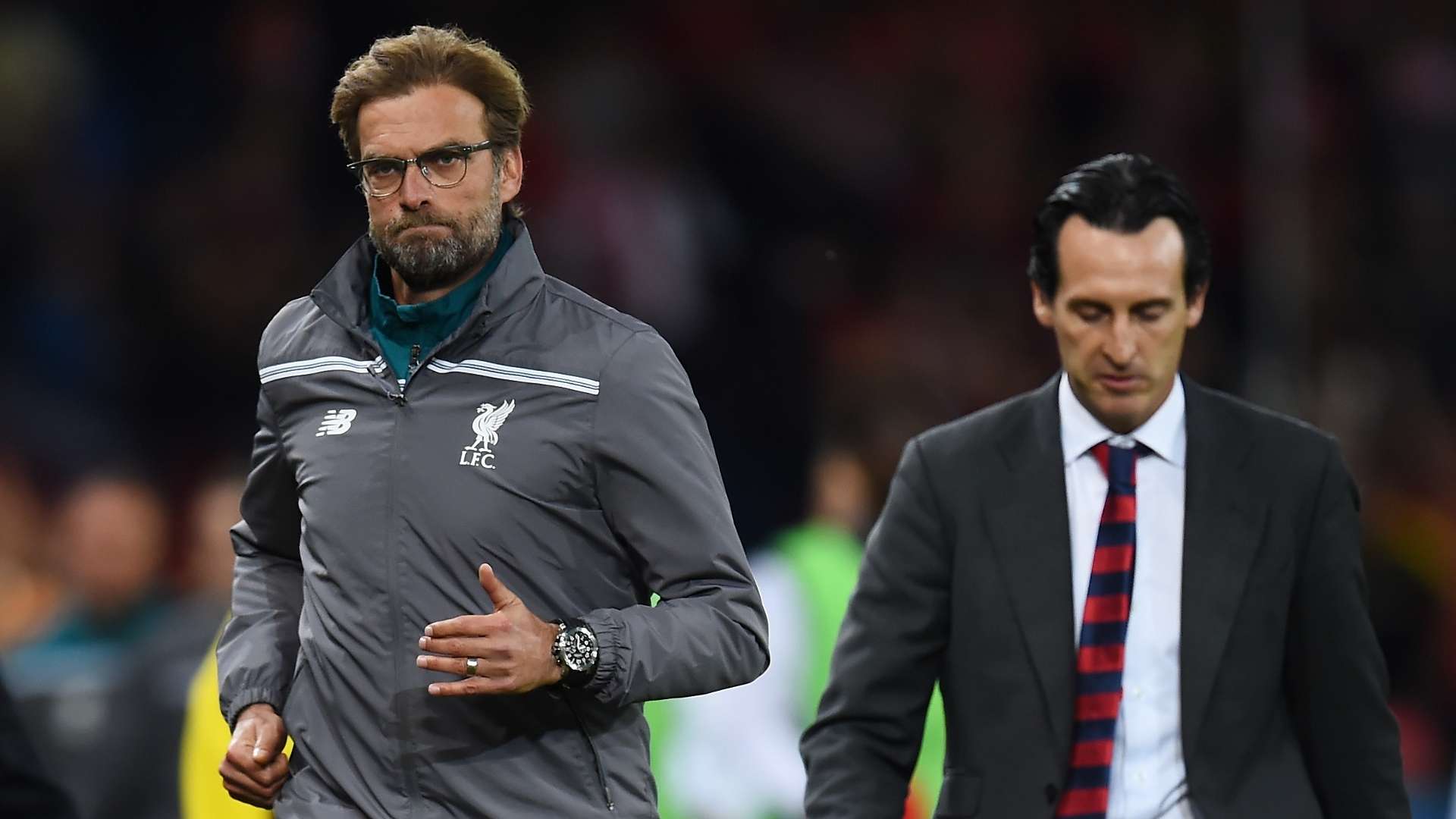The Novotel Hotel, Basel. Well after midnight, and a few beers down.
It should have been a celebration, not an inquest. Liverpool should have been dancing and singing around the Europa League trophy.
Instead, Jurgen Klopp and his squad were left to reflect on what might have been. Regrets would be carried back to Merseyside the following day.
Hours earlier, Unai Emery’s Sevilla had exposed each and every flaw in the Reds’ squad, turning a 1-0 half-time deficit into a 3-1 victory. Liverpool’s fans had spent the half-time interval in St Jakob Park singing The La’s song ' There She Goes' , but were then forced to watch the rest of the match through their fingers. There she went, you could say.
That post-match ‘party’ ended with Klopp delivering a defiant address to his players. "We are Liverpool!" he chanted, before issuing a final rallying cry. "This is just the start for us," he told them.
That was May 2016, and as Klopp and Emery prepare to renew rivalries on Saturday at the Emirates, it is worth reflecting on the impact that night in Switzerland had on the development of this Liverpool side. It was, as the manager said, "just the start".
"Someday, everybody will say that Basel was a very decisive moment for the wonderful future of Liverpool FC," Klopp had told his post-match press conference in Basel.
It was an admirable comment, given what had gone before. Liverpool had been assured for 45 minutes, comfortable even, but their composure evaporated completely after the break.
Kevin Gameiro equalised for Sevilla just 17 seconds after the restart and the Spaniards ran riot. By the end, 3-1 flattered Liverpool.

It would be a stretch to say that the Reds’ transfer policy was dictated by what happened that night, but Basel certainly confirmed a few things for Klopp and his recruitment team.
That summer came the biggest clearout in Liverpool’s history, with no fewer than 15 players leaving permanently. Four of those – Kolo Toure, Joe Allen, Christian Benteke and Martin Skrtel – had been part of the 18-man squad against Sevilla. The rest were deemed dead-wood, not good enough, not strong enough, not fit enough to do what the German needed.
In terms of incomings, two had been arranged prior to the final: Marko Grujic arriving from Red Star Belgrade as one for the future; Joel Matip pinched from Schalke to bolster the options at centre-back.
Klopp had been alarmed at how easily his side crumbled once a good Sevilla side had got at them; he wanted greater strength in the centre of the field, and players with the fitness, courage and character to play his style of football.
The signing of Sadio Mane added much-needed pace to his attacking options, Loris Karius was brought in to compete with (and eventually succeed) the much-criticised Simon Mignolet, and Gini Wijnaldum was bought to add control and nous in midfield.
James Milner, meanwhile, would spend the following season at left-back, with Alberto Moreno unable to curb his wayward performances.
"He looked at the bigger picture," Jordan Henderson said of Klopp’s post-Basel reaction. "He felt as though it could be a big moment in our careers. He felt it was the start of something. You can see how he has taken the team forward since then."
 Getty/Goal
Getty/GoalLiverpool’s next competitive game after Sevilla was against, funnily enough, Arsenal. They won 4-3 at the Emirates – one of only two victories in their last 18 visits – and have rarely looked back.
In all areas – recruitment, mentality, performance level, results – the club has continued to move forward. They’re competitive again, at home and abroad, and have a squad to be envied. All that has been missing is that most precious of things: silverware.
Their start to this season suggests that could soon change, though competition at the top of the Premier League is fierce. Liverpool are one of three unbeaten sides after 10 games, but face the toughest fixture of the weekend.
Klopp has not lost to Arsenal since taking over, winning three and drawing two of his five meetings. Liverpool, remarkably, have scored at least three goals in each of those games – no side has ever achieved that feat six times in a row against the Gunners.
Emery’s side have been in fine form themselves, unbeaten in 13 games in all competitions, winning 12. Interestingly – especially given what happened in Basel – they are a team that improves in the second half of matches.
Eighteen of their 24 league goals have come after the break, they have not led at half-time once so far this season, and if games finished after 45 minutes, they would be 17th in the table.
Emery certainly has Klopp’s respect, and vice versa. His three successive Europa Leagues with Sevilla were followed by five trophies in two seasons with Paris Saint-Germain. He’s a manager used to winning, and his start at Arsenal has been encouraging. After 22 years of Arsene Wenger, the Gunners are heading in a new direction under the Spaniard.
His role in Liverpool’s development, though, cannot be ignored. He broke them in Basel, but in many ways that night helped make them.
The journey of Klopp’s Reds can be traced back to that Europa League humbling at the hands of Emery.


